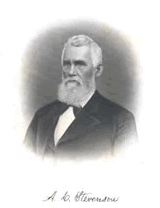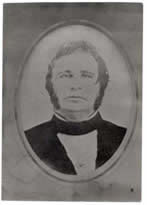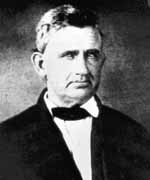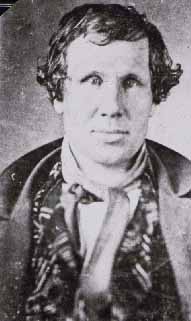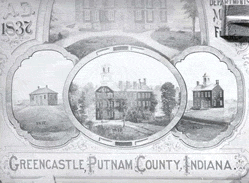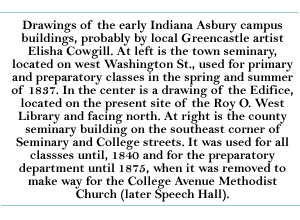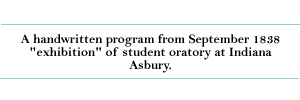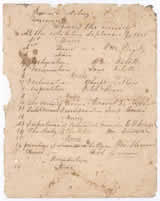
|
|
|
|
Pages: << Back 1 2 3 4 5 6 7 8 9 10 Next >> The
board chose three Greencastle men as its first officers: Dr. Alexander
Stevenson, a physician and farmer, was named president and served
twice from 1837-1839 and again 1840-1841; Dr. Tarvin Cowgill, who
had headed the group that successfully presented Greencastle's case
before the Indiana Conference, secretary; and Rees Hardesty, a local
businessman, treasurer.
_______________________________________________ Among the first business transacted by the trustees, who met 17
times during 1837, was the selection of a building site in the southern
part of the town plat of Greencastle. Two Methodist clergymen, John
C. Smith and Aaron Wood, were chosen as agents to raise money for the
university by stumping the state and selling scholarships enabling
the purchaser to enroll students in its classes. They frequently
received more goodwill and prayer than cash. Leasing the county
seminary building for the anticipated preparatory department, the
board complied also with a requirement of a loan of $200 by opening
an "ABC Spelling reading writing and Arithmetic School"
in a small two-room "town seminary" on Washington Street
on March 20. The pastor of the local Methodist Church, John Newell,
taught a handful of children here until mid June, when he was succeeded
by James McCachran, who turned the teaching duties back to Newell
again sometime during the following year. This initial educational
venture at Old Asbury is not mentioned in the records after September
1838, when it apparently came to an end.
By
November 1837, the infant institution boasted 40 students, ranging
in age from 13 to 28. As early as December the trustees began making
appointments to the college faculty. They elected the Rev. Joseph
S. Tomlinson professor of mathematics, but the Transylvania University
graduate declined to leave the presidency of Augustana College in
Kentucky for what seemed an uncertain future in Greencastle. A few
months later he also rejected the board's offer of the presidency.
The first regular member of the faculty, then, was Cyrus
Nutt, who accepted an appointment as professor of languages
in addition to his post as principal of the preparatory department.
For the moment he also served as acting president and was assisted
in the preparatory classes by the Rev. John Weakley. |
Depauw University e-history | E-mail comments to: archives@depauw.edu
|
People, Events & Traditions
|
